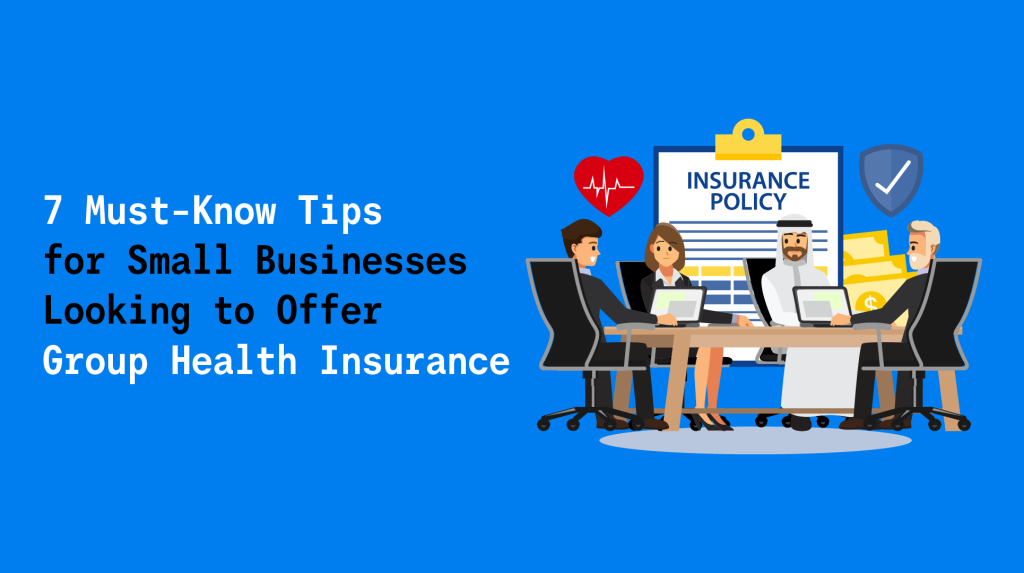Insurance for Small Businesses
Navigating the labyrinth of risks that small businesses face can be a daunting task. Like a seasoned adventurer traversing treacherous terrain, having the right insurance coverage can serve as a safety net, shielding your business from unforeseen financial pitfalls. While the specifics of each policy may vary, understanding the types of insurance available can empower you to make informed decisions that safeguard your enterprise.
There’s a plethora of insurance policies available, each tailored to address specific risks. General liability insurance, for instance, is a cornerstone of any small business’s insurance arsenal. It’s like a protective shield, safeguarding your business from lawsuits arising from bodily injuries, property damage, or advertising mishaps. Commercial property insurance, on the other hand, acts as a guardian of your physical assets, providing coverage for buildings, equipment, and inventory in the event of fires, storms, or other perils.
Just as a wise traveler prepares for unexpected detours, business interruption insurance ensures that your revenue stream won’t be derailed by unforeseen events. This coverage compensates for lost income and expenses incurred due to disruptions caused by natural disasters or other incidents that halt your operations. And for those businesses that operate vehicles, commercial auto insurance is a must-have, providing protection against liability, property damage, and medical expenses resulting from accidents involving company-owned vehicles.
Furthermore, professional liability insurance, also known as errors and omissions insurance, is a lifeline for businesses that provide professional services. It offers a safety net against claims of negligence, mistakes, or omissions that may arise while carrying out your professional duties. And for those in the construction industry, builders risk insurance serves as a guardian angel, safeguarding construction projects from the perils of weather, theft, and accidents.
Insurance for Small Businesses: What You Need to Know
Starting a small business is an exciting venture. Yet, it can also be a little daunting, particularly if you’re not sure what you need to do to protect your business. One of the most critical things you can do is get the right insurance. But with so many insurance options available, it can be tough to know where to start. This article will provide you with a comprehensive overview of the types of insurance that small businesses need.
Types of Insurance for Small Businesses
There are many different types of insurance available for small businesses. The type of insurance you need will depend on the specific needs of your business. However, there are some general types of insurance that most small businesses should consider. These include:
General Liability Insurance
General liability insurance protects your business from claims of bodily injury or property damage that result from your business’s activities. This type of insurance is essential for all businesses, regardless of their size or industry. It can help you cover the costs of medical expenses, legal fees, and other damages that may arise from an accident or injury. For example, if a customer slips and falls in your store, general liability insurance can help you cover the costs of their medical bills and any legal fees associated with the accident.
General liability insurance is typically sold on a claims-made basis, which means that coverage is only provided for claims that are reported during the policy period. It’s important to note that general liability insurance does not cover all types of claims. For example, it does not cover claims for damages caused by your products or services, or claims for bodily injury to your employees.
If you’re not sure whether you need general liability insurance, it’s always best to err on the side of caution and purchase a policy.
Choosing the Right Insurance for Your Small Business
As a small business owner, you’ve got a lot on your plate. Insurance should be one less thing to worry about. But with so many different types of insurance out there, it can be tough to know where to start. That’s why we’re here to help. You can get the coverage you need to protect your business and your livelihood without breaking the bank. Let’s dive into the factors to consider when choosing insurance for your small business.
Types of Insurance for Small Businesses
There are many different types of insurance available for small businesses, but the most common types include:
- General liability insurance: This insurance protects your business from claims of bodily injury or property damage caused by your products, services, or operations.
- Professional liability insurance: This insurance protects your business from claims of negligence or errors and omissions in your professional services.
- Property insurance: This insurance protects your business’s physical assets, such as your building, equipment, and inventory.
- Business income insurance: This insurance protects your business from lost income if you’re unable to operate due to a covered event, such as a fire or natural disaster.
- Workers’ compensation insurance: This insurance provides benefits to employees who are injured or become ill on the job.
Factors to Consider When Choosing Insurance
When choosing insurance for your small business, there are a few key factors to consider:
- The size and nature of your business: The type and amount of insurance you need will depend on the size and nature of your business. For example, a small retail store will need different insurance than a large manufacturing company.
- The risks you face: You also need to consider the risks that your business faces. For example, if you’re in a high-risk industry, you’ll need to purchase more insurance than a business in a low-risk industry.
- Your budget: Of course, you also need to consider your budget when choosing insurance. You want to make sure you’re getting the coverage you need without breaking the bank.
- The deductible: Deductible is the amount you pay out of pocket before your insurance kicks in. A higher deductible will lower your premium, but it will also mean you have to pay more out of pocket if you file a claim.
- The coverage limits: Coverage limits are the maximum amount your insurance will pay for a claim. You’ll need to make sure your coverage limits are high enough to cover the potential costs of a claim.
How to Shop for Insurance
Once you’ve considered the factors above, you can start shopping for insurance. There are a few different ways to do this:
- You can contact an insurance agent: An insurance agent can help you compare quotes from different insurance companies and find the right coverage for your business.
- You can get quotes online: There are a number of websites that allow you to get quotes from different insurance companies online.
- You can contact your state insurance department: Your state insurance department can provide you with a list of insurance companies that are licensed to do business in your state.
Conclusion
Choosing the right insurance for your small business is an important decision. By taking the time to consider the factors above, you can make sure you’re getting the coverage you need to protect your business and your livelihood. Don’t wait until it’s too late to get the insurance you need. Contact an insurance agent or get quotes online today.
Insurance for Your Small Business
Allstate Insurance Company, has been helping small business owners protect their businesses for over 80 years. We offer a wide range of insurance products to meet the needs of small businesses, including general liability insurance, property insurance, and business interruption insurance.
If you’re a small business owner, you know that insurance is essential. It can protect you from financial losses in the event of an accident, lawsuit, or natural disaster. But with so many different types of insurance available, it can be difficult to know where to start.
That’s why we’ve put together this guide to help you get the right insurance for your small business. We’ll cover the different types of insurance available, how to choose the right policy, and how to get the most out of your coverage.
Types of Insurance for Small Businesses
There are many different types of insurance available for small businesses, but the most common types include:
- General liability insurance: This type of insurance protects you from financial losses if someone is injured or their property is damaged as a result of your business operations.
- Property insurance: This type of insurance protects your business’s physical assets, such as your building, inventory, and equipment.
- Business interruption insurance: This type of insurance protects you from financial losses if your business is forced to close due to a covered event, such as a fire or natural disaster.
- Workers’ compensation insurance: This type of insurance provides benefits to employees who are injured or become ill on the job.
- Errors and omissions insurance: This type of insurance protects you from financial losses if you make a mistake in your professional services.
Choosing the Right Insurance Policy
When choosing an insurance policy, it’s important to consider the following factors:
- The size of your business: The larger your business, the more coverage you’ll need.
- The type of industry you’re in: Some industries have higher risks than others, so you’ll need to make sure you have the right coverage for your specific business.
- Your budget: Insurance can be expensive, so it’s important to factor the cost of insurance into your budget.
Getting the Most Out of Your Coverage
Once you have an insurance policy, it’s important to make sure you’re getting the most out of your coverage. Here are a few tips:
- Review your policy regularly: Make sure you understand what your policy covers and what it doesn’t.
- Report claims promptly: If you have a claim, it’s important to report it to your insurance company as soon as possible.
- Cooperate with your insurance company: Your insurance company will need to investigate your claim, so it’s important to cooperate with them.
- Keep your premiums up to date: If you don’t pay your premiums, your insurance policy could be canceled.
- Ask questions: If you have any questions about your insurance policy, don’t hesitate to ask your insurance agent or broker.
**Insurance for Thriving Small Businesses: A Comprehensive Guide**
Small businesses are the lifeblood of our economy, but they also face unique challenges when it comes to insurance. From soaring medical costs to ever-changing regulations, finding affordable coverage can be a daunting task. In this article, we’ll provide you with comprehensive tips and insights to help you effectively manage your insurance costs.
Tips for Managing Insurance Costs for Small Businesses
1. **Shop Around and Compare Quotes:**
Don’t settle for the first insurance quote you receive. Take the time to compare prices and coverage options from multiple insurers. This will help you identify the policy that best fits your business needs and budget.
2. **Negotiate Premiums:**
Insurance premiums are not always set in stone. Don’t hesitate to negotiate with your insurer. Be prepared to provide documentation of your loss history and safety measures to demonstrate your low-risk status.
3. **Implement Risk Management Measures:**
Minimizing risk is key to reducing insurance costs. Implement proactive measures such as employee training, workplace safety protocols, and security upgrades. By taking these steps, you can reduce the likelihood of incidents and claims.
4. **Maintain Good Credit:**
Your business’s credit score can impact your insurance premiums. Maintain a strong credit history by paying your bills on time and managing your debt wisely.
5. **Review Your Coverage Regularly:**
As your business evolves, so will your insurance needs. Regularly review your coverage to ensure it still meets your requirements. Consider increasing limits, adding endorsements, or dropping unnecessary coverage to optimize your policy.
6. **Consider Captive Insurance**
If your business operates in a high-risk industry, or if you have difficulty obtaining affordable coverage, captive insurance may be a viable option. This type of insurance allows you to self-insure your risks, potentially reducing premiums and retaining more control over your coverage.
**Additional Tips:**
* **Explore group insurance plans:** Joining a group or association can offer access to discounted insurance rates.
* **Take advantage of tax deductions:** Small businesses may be eligible for tax deductions on their insurance premiums. Consult with a tax professional for guidance.
* **Partner with an insurance agent:** A reputable insurance agent can provide personalized advice and help you navigate the insurance market.





Leave a Reply